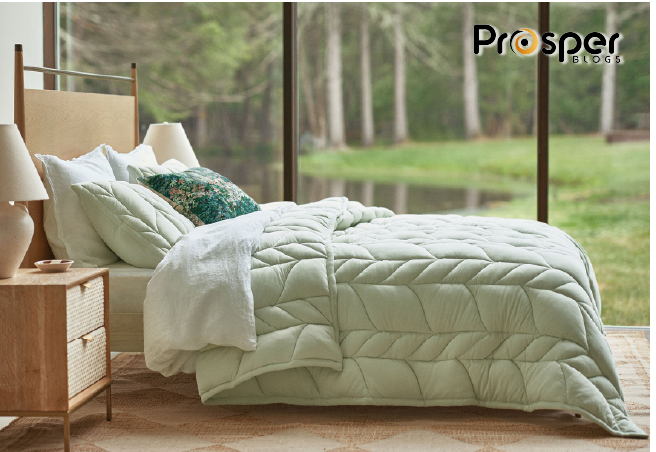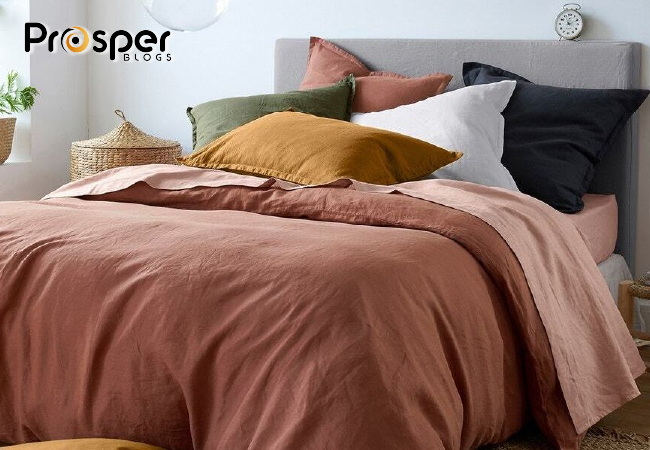
Sustainable Fashion: Eco Friendly Clothing and Shoe Options
Introduction:
In an era where environmental consciousness is paramount, the fashion industry is undergoing a transformative shift towards sustainability. The demand for ecofriendly clothing and shoe options is on the rise as consumers seek ways to reduce their environmental impact and support ethical practices. This blog delves into the world of sustainable fashion, exploring the principles behind it and showcasing a myriad of ecofriendly choices in clothing and footwear. From innovative materials to ethical production processes, let's embark on a journey toward a more sustainable and stylish wardrobe.
The Essence of Sustainable Fashion:
Understanding Sustainability in Fashion:
Holistic Approach: Sustainable fashion goes beyond using ecofriendly materials; it encompasses ethical production, fair labor practices, and mindful consumption. Understanding these aspects is crucial for making informed choices.
The Impact of Fast Fashion:
Environmental Consequences: Exploring the environmental impact of fast fashion, from excessive waste to the depletion of natural resources, highlights the need for a shift towards sustainable alternatives.
Benefits of Sustainable Fashion:
Environmental Conservation: Embracing sustainable fashion benefits the environment by reducing pollution, conserving resources, and promoting biodiversity. It also contributes to social responsibility by supporting fair labor practices.
Eco Friendly Materials:
Organic Cotton:
Chemical Free Farming: Organic cotton is grown without synthetic pesticides or fertilizers, promoting healthier soil and water systems. Clothing made from organic cotton is breathable and comfortable, making it an excellent choice for various garments.
Hemp Fabric:
Versatile and Sustainable: Hemp is a resilient plant that requires minimal water and no pesticides to grow. Hemp fabric is durable, breathable, and becomes softer with each wash, making it an ecofriendly alternative for clothing.
Tencel (Lyocell):
Closed Loop Production: Tencel is a sustainable fabric made from wood pulp, typically sourced from eucalyptus trees. The closed loop production process minimizes waste, and the result is a soft, breathable fabric suitable for a range of clothing items.
Recycled Polyester:
Reducing Plastic Waste: Recycled polyester is made from postconsumer plastic bottles. Choosing clothing made from recycled polyester helps divert plastic waste from landfills and oceans, contributing to a circular economy.
Piñatex (Pineapple Leather):
Cruelty Free Leather Alternative: Piñatex is a sustainable and cruelty free alternative to traditional leather, made from pineapple leaf fibers. It provides a stylish and ethical option for accessories and footwear.
Sustainable Shoe Choices:
Vegetarian and Vegan Footwear:
Cruelty Free Options: Vegan and vegetarian shoes are crafted without the use of animal products. Explore a range of stylish and sustainable footwear options, from sneakers to boots, that align with ethical principles.
Bamboo Shoes:
Rapidly Renewable Resource: Bamboo is a fast growing plant that requires minimal water and no pesticides. Bamboo shoes are lightweight, breathable, and ecofriendly, making them a sustainable choice for various occasions.
Cork Footwear:
Renewable and Durable: Cork is harvested from the bark of cork oak trees without harming the tree. It's a renewable resource that creates lightweight, comfortable, and stylish footwear options.
Upcycled and Recycled Shoes:
Giving New Life: Upcycled and recycled shoes are crafted from materials like recycled rubber, discarded fabrics, or old shoe components. These options help reduce waste and give new life to existing materials.
Ethical Production Practices:
Fair Trade Certification:
Ensuring Fair Compensation: Fair trade certification ensures that workers involved in the production process receive fair wages and work in safe conditions. Supporting fair trade brands contributes to ethical and sustainable fashion.
Local and Artisanal Production:
Community Empowerment: Choosing locally made and artisanal products supports local economies and artisans. It often involves traditional craftsmanship and ensures a smaller carbon footprint in the production process.
Transparent Supply Chains:
Traceability and Accountability: Brands with transparent supply chains provide information about the entire production process, from sourcing materials to manufacturing. This transparency allows consumers to make informed choices and supports accountability in the industry.
Sustainable Fashion Brands:
Patagonia:
Outdoor Activism: Patagonia is renowned for its commitment to environmental and social responsibility. The brand produces high quality outdoor clothing using recycled materials and supports various environmental initiatives.
Eileen Fisher:
Timeless Elegance: Eileen Fisher focuses on sustainable and timeless designs. The brand incorporates organic fabrics, supports fair labor practices, and operates recycling programs to minimize its environmental impact.
Veja:
Eco Friendly Sneakers: Veja is a French brand known for its stylish and ecofriendly sneakers. The company prioritizes transparency in its supply chain and uses materials like organic cotton and sustainably sourced rubber.
Reformation:
Fashion with a Low Carbon Footprint: Reformation is committed to sustainable practices, emphasizing ecofriendly materials and energy efficient production. The brand also provides detailed information on the carbon footprint of each garment.
All birds:
Comfort with Sustainability: All birds specializes in comfortable footwear made from sustainable materials like merino wool and eucalyptus fibers. The brand prioritizes ecofriendly practices and aims to create shoes with a minimal environmental impact.
Extending the Lifespan of Clothing:
Capsule Wardrobe Philosophy:
Curating Timeless Pieces: Adopting a capsule wardrobe philosophy involves curating a collection of timeless, versatile pieces that can be mixed and matched for various looks. This approach promotes mindful consumption and reduces the need for constant purchases.
Proper Care and Maintenance:
Extending Longevity: Implementing proper care practices, such as gentle washing, airdrying, and occasional repairs, helps extend the lifespan of clothing items. This reduces the frequency of replacements and contributes to a more sustainable wardrobe.
Clothing Swaps and Secondhand Shopping:
Eco Friendly Alternatives: Participating in clothing swaps or shopping secondhand allows for the reuse of garments, reducing the demand for new production. It's an ecofriendly way to refresh your wardrobe and discover unique pieces.
Conclusion: Fashioning a Sustainable Future
As sustainability takes center stage in the fashion industry, consumers have the power to drive positive change through their choices. Embracing ecofriendly clothing and shoe options not only reduces environmental impact but also supports ethical practices and social responsibility. By understanding the essence of sustainable fashion, exploring ecofriendly materials, making ethical production choices, and supporting sustainable fashion brands, individuals can contribute to a more conscious and stylish future. Through mindful consumption, extending the lifespan of clothing, and adopting sustainable practices, we can collectively fashion a future where style and sustainability go hand in hand.









